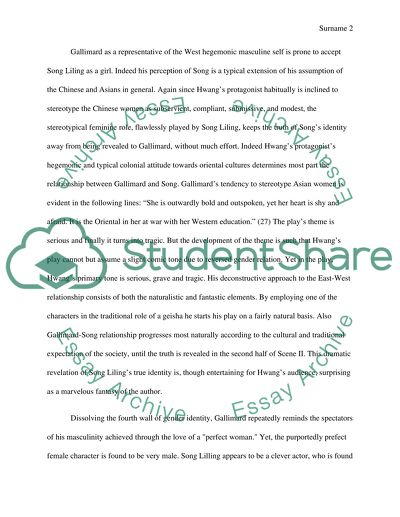Cite this document
(“M. Butterfly: A Study on the West's Feminization of Asia Essay”, n.d.)
Retrieved from https://studentshare.org/literature/1449915-m-butterfly
Retrieved from https://studentshare.org/literature/1449915-m-butterfly
(M. Butterfly: A Study on the West'S Feminization of Asia Essay)
https://studentshare.org/literature/1449915-m-butterfly.
https://studentshare.org/literature/1449915-m-butterfly.
“M. Butterfly: A Study on the West'S Feminization of Asia Essay”, n.d. https://studentshare.org/literature/1449915-m-butterfly.


